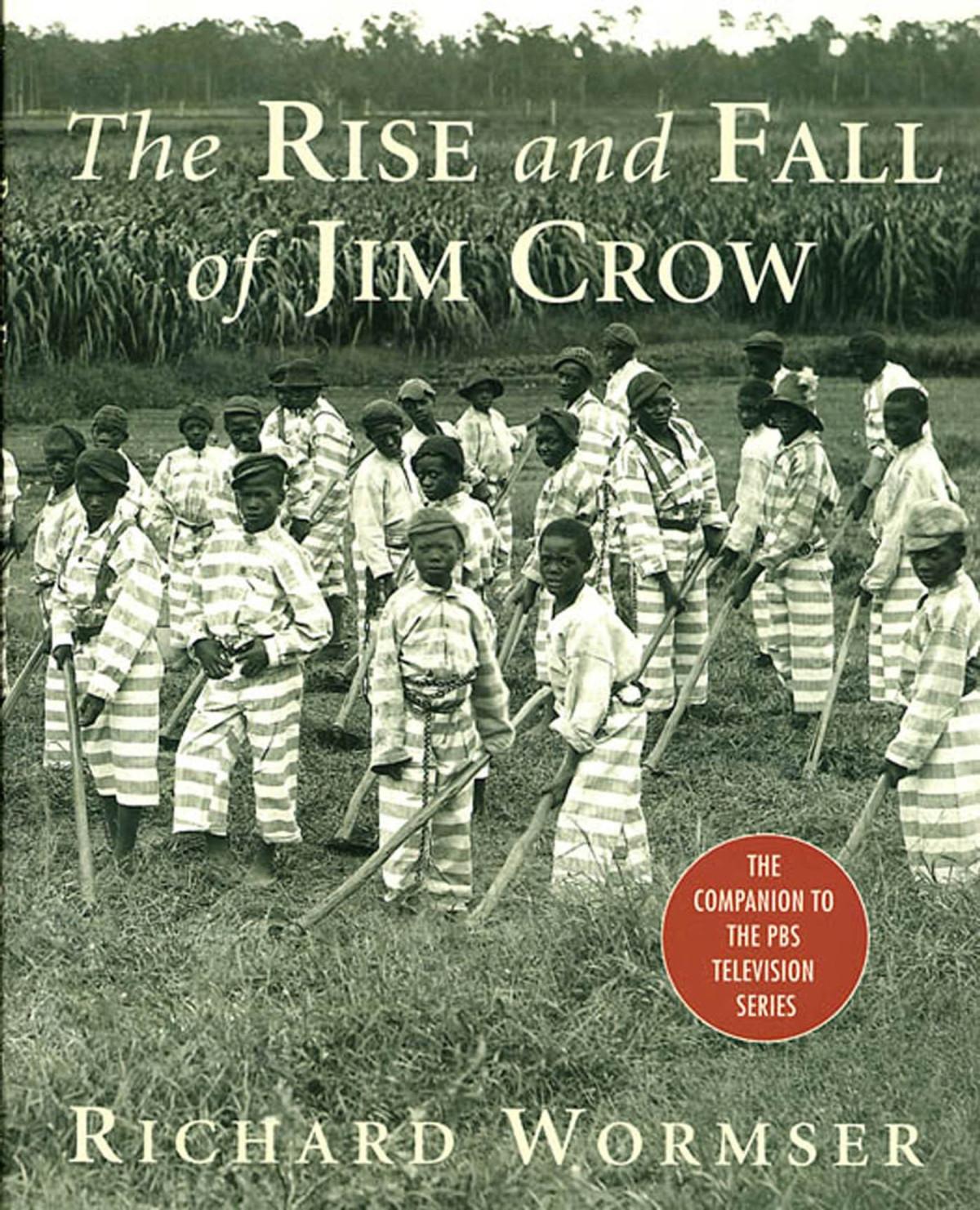Visit to download the full and correct content document: https://textbookfull.com/product/surviving-the-fall-the-complete-bestselling-series-1stedition-kraus/

More products digital (pdf, epub, mobi) instant download maybe you interests ...

Long Fall Complete Set 1 10 Mike Kraus
https://textbookfull.com/product/long-fall-completeset-1-10-mike-kraus/

The Man In The Mask The Complete Manor Series The Manor Series 4 1st Edition Anya Summers
https://textbookfull.com/product/the-man-in-the-mask-thecomplete-manor-series-the-manor-series-4-1st-edition-anyasummers/

Touch The Complete Series 1st Edition Cara Dee Dee Cara
https://textbookfull.com/product/touch-the-complete-series-1stedition-cara-dee-dee-cara/

Halstead Billionaire Brothers: The Complete Series Boxset 1st Edition Lauren Wood
https://textbookfull.com/product/halstead-billionaire-brothersthe-complete-series-boxset-1st-edition-lauren-wood/

Bayou Devils MC The Complete Series 1st Edition A.M. Myers [Myers
https://textbookfull.com/product/bayou-devils-mc-the-completeseries-1st-edition-a-m-myers-myers/

The Chased Series Complete Box Set 1st Edition Kayla Kelly [Kelly
https://textbookfull.com/product/the-chased-series-complete-boxset-1st-edition-kayla-kelly-kelly/

The Rise and Fall of Jim Crow The Companion to the PBS Television Series 2nd Edition Wormser
https://textbookfull.com/product/the-rise-and-fall-of-jim-crowthe-companion-to-the-pbs-television-series-2nd-edition-wormser/

The Legend Trilogy 1 3 Complete Series Meghan March
https://textbookfull.com/product/the-legend-trilogy-1-3-completeseries-meghan-march/

Ballsy Boys: The Complete Series (Ballsy Boys #1-5) 1st Edition K.M. Neuhold
https://textbookfull.com/product/ballsy-boys-the-complete-seriesballsy-boys-1-5-1st-edition-k-m-neuhold/

By Mike Kraus
www.facebook.com/MikeKrausBooks
Table of Contents
Preface
Introduction
Chapter 1
Chapter 2
Chapter 3
Chapter 4
Chapter 5
Chapter 6
Chapter 7
Chapter 8
Chapter 9
Chapter 10
Chapter 11
Chapter 12
Author’s Notes
Stay updated on Mike’s books by signing up for the Mike Kraus Reading List. Just click right here.
You’ll be added to my reading list and I’ll also send you a copy of some of my other books to say thank you!
(I hate spam with the burning passion of a thousand suns, and promise that I’ll never spam you.)
Special Thanks
This book wouldn’t be possible without the help and support of my amazing beta reading team.
Thank you to Richard, Glenda, Julie, Minnie, Shari, Randy, Teresa, Marlys & Kellie for your awesome feedback during the beta reading process!
Preface
“…and welcome to Los Angeles!”
The announcer’s voice over the loudspeaker was far too cheerful for the day that Rick Waters was having. After several delays across three separate airports he had finally arrived at his destination. Instead of having a night to rest before his big presentation, the flight delays had cost him his entire night’s sleep. It was now only a few hours before his meeting was scheduled to start and he would be lucky if he managed to get there on time.
“Come on already…” Rick grumbled as he trudged through the crowd of people around him. Although the air conditioning system in the Los Angeles airport was running full blast, the direct sunlight through the large glass windows of the terminal made him feel like he was about to combust from the heat.
As Rick walked along, he had the sudden feeling of knowing exactly what it was like to be a chicken inside a roasting rack in a grocery store. After a half hour of walking and waiting, the crowd finally thinned out enough that he could start running to try and make up for lost time. His dress shoes ticked against the hard floor and he winced at the blisters he could feel building up on the backs of his feet and his toes.
Born in the rural area in southern Virginia, Rick grew up on a farm where learning how to care for chickens and tend to crops came as naturally as learning how to read and write. By the time he graduated high school, though, he had been overcome with a rebellious streak and set out for Virginia Tech to learn all he could about computers. To his young mind the prospect of working in an air-conditioned office for the rest of his life sounded far more appealing than toiling outdoors.
A few years of partying combined with above-average grades led to a job offer from the local branch of a national car manufacturer. He originally went to work for them as a general purpose IT jockey, fixing everything from network problems and virus infections to changing print cartridges. It didn’t take long for
Rick’s skills to become evident to the higher-ups in the company though, and he soon found himself going through annual promotions far faster than his peers as he took part in larger and more important initiatives.
Like the rest of society, car manufacturers were trying to adapt to the rapid integration of technology in every aspect of life, both through new self-driving technologies and through selling addons for older vehicles. Government regulations that mandated that vehicles be able to “talk” to each other were just a few years out from becoming law. While a universal communication specification had already been decided upon, the details were still being hashed out.
Rick wasn’t too keen on the new changes or many of the ideas the company had but he worked diligently and faithfully for his employer after all, he who pays the piper calls the tune. He worked on the team that developed the communication protocols, helped to create automated driving systems and was the lead project manager for a system that made every single new car automatically call for emergency services if the vehicle was reported as stolen or was in an accident. Many of the developments were iterations and improvements on older technology, but there were more than a few that were new as well.
Thanks to the location of his employer’s main facility, Rick never left the area he had grown up in. As time passed and he worked his way up the corporate ladder, he began to miss his childhood. Reconciliation with his parents came easily enough and he soon found himself with a plot of land on the outskirts of a small town that was on the eastern edge of the city where he worked.
Rick, along with his wife—whom he had met through the strangest of coincidences—and their three children spent every weekend working to make their plot of land self-sustaining. They grew over a third of their own food, ran half of their household appliances off of solar panels and learned the basics of survival and self-sufficiency skills. Though Rick’s job robbed him of his soul every Monday through Friday, it was restored over the weekend, and every moment of those two days made him happy. An absence of
technology at home was something Rick had insisted upon. He already had to deal with it far too often at work and was disturbed by how much people were relying on computers to perform even the most basic tasks. It was for that reason that he made it a point to keep things at home as simple and basic as possible.
Rick stopped and sighed as he looked over the vast parking lot where the rental car salesman had assured him his “deluxe” vehicle would be waiting. Rick hated pavement, glass and steel more than almost anything else, but the presentation he had to give would be the deciding factor in whether or not his company would be selected as the primary partner in an upcoming government contract. His company’s future—not to mention a huge promotion—were on the line.
“It’s not natural for it to be this hot… at least not at this time of the year.” Rick huffed to himself as he jogged across the parking lot. He could feel the sweat pouring down the back of his neck and soaking through his dress shirt. He hoped that the car’s air conditioner worked well enough to dry him out by the time he got to his meeting.
After ten minutes of wandering around pushing the alarm button on his key fob, he finally heard the distant beeping of a horn and located the small SUV he had rented. Rick threw his luggage in the back and hopped into the front seat. He glanced at his phone as he turned on the car and saw a new message waiting for him.
Sorryflightsweredelayed!:(LMKwhenugetthere?
Rick smiled and typed out a fast reply to his wife.
Safensound.Justgotcar.Willcallaftermtg.<3
As Rick pulled out of the parking lot, he tried to force himself to relax a bit as he thought over the presentation. It wasn’t complicated—in fact it was going to be one of the easiest he had ever given—but a car company attempting to move into providing general IT services was a risky move. Still, he thought, everybody’s innovatingthesedays.
Rick ran through the names of the executives and government officials he was going to meet as he pulled onto the
spaghetti nest of roads leading out into the city. He repeated them softly, hoping that he had memorized their faces properly the night before. As he mumbled under his breath a loud noise from behind him caught his attention. He glanced at the rearview mirror only to find it filling with the reflection of billowing orange flames and black smoke. Startled, he turned around just as the sound wave from the massive secondary explosion caught up to his car.
KABOOM!
The safety glass in Rick’s SUV shattered and cracked into thousands of tiny pieces from the force of the explosion. All of the cars around him experienced the same thing, their horns blaring loudly in unison as their emergency systems kicked in. Rick turned and removed the key in his SUV but the horn continued to blast, so he instead tried to start the engine up again. It sputtered and flared to life, but a few seconds later it died. He tried starting it again, but the engine didn’t respond. The radio, however, turned on by itself and began cycling through the local stations at a high rate of speed.
“What on earth?” Rick looked at the indicators on the console of the car, watching the needles and numbers spin and flail around as they randomly changed positions and values. As Rick tried to make sense of what was going on, he noticed that there was a peculiar smell starting to drift through the broken windows.
“Is that…” Rick sniffed, wondering aloud. “Is that gasoline?” He jumped out of the car and knelt down. Underneath his car—and all of the cars next to him that he could see—were trickles of fuel flowing from somewhere beneath their undercarriages. Having worked on a few control systems for the vehicles his company manufactured, Rick suspected that the computer in the vehicle had gone haywire and opened a valve that should have never been opened except in maintenance situations.
As he stood back up and looked at the newly-formed parking lot of vehicles around him, Rick suddenly felt the grip of fear seize hold of his gut. All of the vehicles around him were shut off, yet their horns were still blaring and they all had their radios turned to the maximum volume setting and were cycling through the stations in unison. Something, he realized, was terribly wrong, and
he had the strong urge to get as far away from the vehicles as he could.
Rick threw open the door to the back of the SUV and pulled out his luggage before running back to the front and snatching his phone through the window. He began heading back towards the terminal, in the general direction of the thick plume of black smoke that was still rising in the distance, when a far-off whine drew his attention. He looked up into the sky behind the terminal, shielding his eyes from the sun, and saw a white speck growing larger with each passing second.
The whine grew louder as the speck grew larger, and Rick soon made out the shape of a large aircraft hurtling toward the ground. He stared, slack-jawed, as the aircraft impacted with the back side of the terminal building, sending another fireball into the sky. Flaming pieces of wreckage from the impact hurtled through the air and, as Rick watched them begin to descend toward the rows of noisy cars, he realized what was about to happen.
“Run! Get out of here!” Rick screamed at the people around him, but no one paid him any mind as they stared at their non-functional phones and tried to talk to each other over the din. Rick shouted at a few of the people closest to him yet again but they merely looked at him like he was insane.
Not willing to wait any longer, Rick took off running, cutting laterally between the vehicles as he made for a small patch of grass that separated two roads from each other. As a piece of wreckage from the terminal landed a few dozen feet behind him, he could feel the ground shudder from the impact. The vibration and noise were accompanied by a faint whooshas the fire from the wreckage ignited the gasoline fumes that were gathering around and beneath the cars. The whooshwas followed a second later by the sound of multiple explosions and the feel of even more intense heat on his hands, the back of his neck and head.
Rick didn’t look back as he ran forward, pushing his feet to go even faster, until he finally made it to the grass. He continued running away through the grassy area until he saw a small open garden with a few benches and pieces of art carved into large
boulders. He dove into a corner and curled up next to the closest boulder, putting his luggage in front of his face and chest to shield himself from the seemingly infinite explosions that were erupting around him. They continued, growing louder as the fire and flames spread from vehicle to vehicle, drowning out the screams of those burning alive, each of them the first victims of a battle that would engulf the world.
Introduction
Although there are still holdouts, the world’s economy is rapidly trending towards becoming completely digitized. The concept of money becomes more abstract with each passing day as credit cards, electronic transfers and digital payment systems become ubiquitous in our everyday lives. Some countries have embraced this change, believing that a one-hundred percent digital economy is the wave of the future. Others aren’t so sure and are fearful of the known—and unknown—negative implications that this will have on our future.
The unasked and unanswered question that lurks in the backs of the minds of those who are suspicious is this: what if this all vanishes? Without something tangible like gold, silver or even scraps of paper that hypothetically represent gold or silver, our wealth feels all the more ephemeral and fleeting. So what would happen if someone were to turn off the lights on those 1’s and 0’s and all of our money was gone overnight? That, however, is only a small piece of the rapidly evolving puzzle.
As the economy moves from the physical to the digital, so too do all other aspects of our lives. Refrigerators, beds and even thermostats are now connected to the Internet as part of what’s called the “Internet of Things.” These devices are pushed onto the market by corporations so quickly that proper security testing cannot be performed. Exploits are routinely found in home appliances and gadgets that render them vulnerable to attack. With this in mind, that nagging question becomes even more complicated. What if not just our money—but all aspects of our lives—were turned off in the blink of an eye? Not by an EMP or a nuclear war but by an act of aggression, either war or terrorism or something even more insidious. Some would say we’ve survived without the Internet before and we can do so again. The fact remains that fundamental parts of our lives depend on this technology. Tractors have built-in security chips that prevent farmers from working on their own equipment. Cars made in the last few
decades all have computer chips, and many recent models connect to the Internet.
So what if, overnight, every single device that depends on the Internet to function stopped working? The economy —driven more each year by the Internet than ever before—would fall to pieces. Bank accounts would be zeroed out. Phones, computers, vehicles, airlines, shipping lines, power plants, military defense systems and more could all be rendered virtually useless. Anything containing a sophisticated enough computer along with fuel or a battery could be turned into a bomb and used to maim or injure those nearby. It would be, in a word, chaos.
In a world such as this, only the most prepared and resourceful could survive.
In this world, only the most prepared will survive the fall.
Chapter 1
The Waters’ Homestead Ellisville, VA
Autumn was truly in the air, and the leaves on the trees showed it in full force. A cold front had blown through from North Carolina up through New York the previous night, and by the time Dianne Waters woke up the next morning she was shivering. After making an early breakfast of warm oatmeal, toast, eggs and cereal, Dianne cleared the breakfast table and sat down for what she lovingly called “another day on the farm.”
Set on the far outskirts of Ellisville—itself on the far outskirts of Blacksburg—the Waters home was a modest-sized two story building set in the dead center of a forty acre plot of land. Thick woods ringed the property and a long, winding driveway passed through them from the house out to a gravel road that, after half a mile, connected up with a country highway.
The property was isolated, charming, beautiful and peaceful—no one ever visited except to deliver the occasional package and piece of mail and, even on a clear day, it was hard to hear any cars or neighbors nearby thanks to the density of the trees. A small spring bubbled into a creek that passed a few hundred feet from the house, meandering down into a three-acre lake at the bottom of a long sloping hill. The area in between the house and the lake had been cleared and turned into a mixture of fields for growing small amounts of crops as well as for keeping a small variety of animals.
Dianne listened to her children as they bumped along upstairs, doing more playing than cleaning, and smiled as she looked out the window. The leaves were finally changing from green to a dazzling display of orange, red and yellow. She sighed and ran her fingers through her dark hair, pulling it into a ponytail as she heard another loud bump followed by the scream of Josie, her youngest at six years old. It was once again time to play the exciting game of
“which one of you made your sister cry,” starring Josie’s older brothers Mark (thirteen) and Jacob (ten).
“Boys!” She shouted up at the ceiling, smiling with some small satisfaction as she heard the whispered panic in her son’s voices. “Get your butts down here right now!”
All three of her children showed up a few minutes later, standing in a row at the end of the table. Mark and Jacob both looked solemnly at the floor while Josie, sporting a red bump on her head, fidgeted with her hands and feet as she stood, unable to stay still.
“What is it you boys are supposed to do with your sister?”
“Be nice to her?” Jacob was the first to speak as he tried to gain an advantage over his older brother.
“Correct. Now, I don’t know which one of you pushed, poked, tripped or hit your sister, nor do I really want to know. I want you both outside feeding the animals right now, then when you’re done, I’ll have a few more chores for you before you start on school for the day.”
Dianne waved off the pair of “aw, man’s” that came next and pointed out the door and at the field beyond. As the boys traipsed off, she watched them for a moment before glancing at Josie. “You’re not off the hook, missy. Come on, let’s get to your work.”
Dianne had been a vocal proponent of homeschooling ever since she was a child, and Rick had gone along with her desire while offering a few suggestions and conditions of his own. In addition to the education they received at home, each of the children spent a few hours every other day with after-school programs, learning to do everything from cooking and basic engine repair to computer maintenance and programming. While Rick wasn’t able to participate in their education as much a he wanted due to his job, ensuring that they had a well-rounded childhood and solid foundation were of paramount importance to both him and Dianne.
As the morning turned into the afternoon and all three children took a break for lunch, Dianne began packing their things into the family car to take them into town. One of the perks of being married to someone reasonably far up the food chain at a car manufacturer was getting a new car to test drive every few months. Dianne was particularly happy with the van that was parked in their driveway, especially since it had some of the latest selfdriving and collision avoidance features baked in.
“Kids! Let’s go or we’re going to be late!” Dianne walked out to the car, listening to her children slowly follow after her as they talked to each other about a book they had been reading for the past few nights. When Dianne arrived at the van she opened the door, tossed their backpacks into the front passenger’s seat and leaned in to turn on the ignition before heading to the back seat to strap Josie in.
As Dianne buckled Josie’s booster seat straps, the soft tones of some local soft rock station abruptly cut off, followed by the sound of the van’s engine sputtering a few times before it too, died. A second later the van’s horn began to sound and the radio kicked back on at full volume as it cycled through the local radio stations at an increasing rate of speed.
“What the—Mark? Jacob? Did one of you boys mess with the van? Your dad is notgoing to be happy!” Dianne shouted over the sound of the car as she unbuckled Josie, trying to shield her daughter’s ears with her arms.
“It wasn’t me, mom!”
“Me either!”
Dianne pulled Josie out of the car and yelled. “You three back in the house!”
Dianne waited until the kids were back behind the car before climbing into the driver’s seat. She twisted the dial for the radio volume but nothing happened. She inserted the van’s key and turned it, but nothing happened there either. She got back out of the car and headed back toward the house, covering her ears with her hands. “What’s going on with that stupid thing?”
Once she was back inside, Dianne grabbed her cellphone off the counter and tapped in her unlock code. She scrolled through her contact list until she reached the name for the engineer who Rick had told her to call if anything ever broke down on one of the test cars. Wincing at the sound of the still-shrieking vehicle, Dianne shooed her children into the next room before closing the door and sitting down in a nearby chair.
After holding the phone to her ear for several seconds, Dianne pulled it away and glanced at the screen. The call status, instead of reading out as a count of how long the call had been ongoing, merely said “Dialing.”
“What?” Dianne hung up and dialed again. She watched the screen of the phone, but nothing changed, even after several more seconds. She sighed and hung up the phone, set it down on the kitchen table and then turned to her children.
“Stay in here. I’m going to go disconnect the battery, then we’ll take the old truck into town, okay?”
Jacob, Mark and Josie all nodded and Dianne headed back toward the front door of the house. As she swung the door open, a light breeze picked up, sending the smell of freshly cut grass dancing along. Accompanying it, however, was a foul stench that took Dianne a few seconds to recognize.
“Gasoline?” Dianne mumbled to herself as she turned to look at the car out in the driveway. As she looked at the vehicle, wondering why she was suddenly smelling gasoline, the radio shut off, the horn stopped blowing and the electrical system shorted out. Sparks flew from the bottom of the van, igniting the gasoline vapors with a faint whooshthat was quickly followed by an ear-shattering explosion. The van shuddered under the force of the explosion and burst into flames that quickly began to consume it both on the inside and out.
Dianne fell back against the front door of the house, partially from the force of the blast and partially from the shock of watching a vehicle that her children had been climbing in a few minutes earlier explode before her eyes.
“Mom?” Mark’s voice came from inside the house. The thirteen-year-old pulled open the front door and all three children gasped as they saw the wreckage of the van in the front driveway. Flames licked out from the vehicle and black smoke filled the air, rising high above the trees. A tire popped from the heat, sending pieces of rubber exploding outward, and Dianne turned and pushed Mark back through the door and into the house. She followed behind him and slammed the door shut before turning to look at the carnage out front.
“Mom, what’s going on?”
Dianne could only shake her head and whisper in response.
“I don’t know, Mark. I don’t know.”
Chapter 2
Los Angeles, CA
Even after the explosions around him had slowed to a stop, Rick stayed still in his hiding spot for nearly half an hour. In the distance he could hear screams, car alarms and the sound of chaos as the city began to tear itself apart. The whine of distant engines followed by tremendous explosions indicated that more planes had been downed, and the smell of smoke had increased to a level where it was getting difficult for him to breathe without wheezing.
When Rick finally released the death grip he had on his luggage, opened his eyes and started to sit up, he coughed and grabbed at his eyes as both they and his throat began to sting. He looked up into the sky that had been blue and cloudless only a short time ago. It was filled with acrid black smoke that billowed from innumerable fires and blotted out the sun.
“What the hell happened?” Rick slowly stood to his feet, pulled out a handkerchief from his back pocket and pressed it over his nose and mouth. In the distance the devastation took on an eerily unreal quality, looking like something out of a Saturday morning science fiction film instead of reality. Up close, however, the carnage became all too real.
Twisted and blackened bodies were frozen next to cars along the streets and parking lots surrounding where he was, as fires continued to burn from the engine and passenger compartments of the cars themselves. Most of those who had been far enough from their vehicles to survive the blasts were severely injured, and Rick could see small groups of them huddled on sidewalks or beneath the overhangs of small buildings, tending to their wounds.
He turned back and looked at what was left of the airport complex, scarcely able to believe his eyes. Two of the terminals were in flames from the plane that had slammed into the side of the building. Several parked planes were overturned and in pieces, scattered about by the force of the explosion. There were no
signs of emergency vehicles in the area, though Rick doubted if anyone in the terminals or aircraft could have survived.
The main building was on fire as well, and several smaller fires had started from the overturned fuel trucks on the tarmac, and were slowly spreading as more fuel continued to leak from storage containers, aircraft and vehicles. He could just make out people running to and fro in front of the main entrance of the airport, and several of them wore firefighter and emergency services uniforms.
Rick walked slowly out from the grassy area he was in, hopping over the slow-burning flames that flickered along the green grass toward the center. The heat from the wrecks of the cars was nearly overwhelming, and every few seconds the wind changed, blowing a fresh wave of smoke and soot into his face. Rick covered his face with his arm and tried to pull his suit jacket closed to shield his torso from the heat. He walked through the maze of wreckage quickly, having to divert his route several times to get past some of the still-burning vehicles.
With no idea of what to do or where to go, Rick looked for the highest ground around, noticing that a small road leading away from the airport turned into an overpass that looked to be the highest point in the area. He headed for the road at a quick pace, keeping a tight hold of his luggage as he went. It wasn’t until he broke into a jog and felt his phone in the breast pocket of his jacket bouncing against his chest that his eyes went wide and he stopped to pull it out.
His phone turned on with the touch of a button, though the signal was displaying as far weaker than he would have imagined for where he was located. He frowned, then hit the contacts button before touching the image in the first “Favorites” slot.
“Come on… pick up…” Rick held the phone against his ear, hearing the telltale clicking sounds that indicated that something was happening in the background. It took almost a full minute for him to hear a single ring, which cut short as a message began playing.
We’resorry,thiscallcannotbecompletedasdialed. Pleasetrytextingyourintendedrecipientinstead.
Rick pulled the phone away and scrunched his face in confusion. “Please try texting your intended recipient?” He repeated the phrase to himself, wondering if he had somehow misheard. “I’ve never heard thatmessage before. Still, though, good idea.”
Rick brought up his text messaging app and punched in a quick message to his wife.
Uok?Idontknowwhatsgoingon.Stayinsideand awayfromthecar.K?
He was just about to hit the “send” button when he noticed that the phone was rapidly growing warm on the backside. He turned it over and saw, to his horror, that the back case was warped outward like there was a balloon beneath it that was being blown up. Realizing what was happening, Rick didn’t hesitate to throw the phone as far as he possibly could, sending it through the air to skitter along the asphalt road before it, too, exploded into flames.
A battery becoming compromised, expanding and then exploding was not a common occurrence, but it had happened before, especially with certain models of phones and batteries that didn’t go through stringent quality checks. For it to happen in conjunction with everything else that was going on, though, seemed more than just a coincidence in Rick’s mind. He stared at the small phone as flames slowly melted the plastic, reducing it to nothing more than a pile of blackened metal and plastic sludge on the road. Giving the mound of what used to be his phone a wide berth, Rick continued to trudge along the road as it rose steadily and turned into the overpass. When he finally reached the peak, he stopped and turned to look at the city to the east.
“Nope. Definitely not a coincidence.” Rick stared, mouth agape, at the destruction before him. At least two other planes had fallen into the city, one striking a skyscraper which was teetering on the edge of falling over. The smoke that filled the sky was fed from fires that were on every street and in most of the buildings he saw. The magnitude of the destruction was
overwhelming and Rick turned around and collapsed onto the ground as his mind reeled.
He realized in the back of his mind that he was in shock, and most likely had been since he had started walking away from the airport. As the adrenaline began to wear off, though, he could feel his entire body begin to shake as his thoughts raced, unhindered and uncontrollable. Whatever was going on was not, he determined, a dream, nor was it some sort of freak accident. Cars didn’t shut off and start leaking gasoline. Ordinary phones didn’t have their batteries short circuit and explode. Planes didn’t just fall from the sky.
Rick put his head back against the concrete side of the overpass and closed his eyes, feeling himself sinking into a black pit of unconsciousness. He welcomed it and the relief that he hoped it would bring.
Chapter 3
The Waters’ Homestead Ellisville, VA
“This place looks like crap!”
“Language, Jacob!”
“Sorry, mom.”
“Well it iskind of crappy.”
“Mark! That’s enough from you, too!” Dianne brushed a few strands of hair from her face and took a deep breath as she surveyed the kitchen. Water was everywhere, spreading slowly out over the hardwood floors and soaking into the large rug under the dining room table. Grey smoke and the smell of burning electronics filled the air while a large piece of the edge of the table itself still smoked from the remnants of Dianne’s cellphone. She had left it on the table when she went outside, and a few seconds after she came back in to try to make another call, it had burst into flames in front of her. A few baking pans full of water from the sink later and the fire had been put out, though the dining room was a complete wreck as a result.
“Mom? Can I come down now?”
“Not yet, sweetie!” Dianne called up the stairs to her daughter, then turned to her sons. “Mark, I need you to go make sure the animals are okay. The car was pretty loud and they might have been spooked. Give them some extra food to calm them down, all right?”
“Sure thing, mom.”
Dianne patted her eldest son on the back as he walked out the back door. She turned to Jacob, who was sitting on the stairs looking into the kitchen. “I need you to go play with your sister upstairs, okay?”
“But I want—”
“Kiddo. I need your help right now, okay?” Dianne was doing her best to keep the stress out of her voice, but she could
feel herself reaching her limit and needed a few minutes alone to figure out what to do.
“Fine…” Jacob’s shoulders slouched as he went up the stairs and Dianne sighed at his attitude before turning back to survey the kitchen.
“Right. So. The car exploded. My phone exploded. Just a perfectly normal day here.” Dianne stepped gingerly through the water in the kitchen and picked up the landline telephone hanging on the wall. Rick had insisted on having one installed ‘just in case there’s an emergency’ a fact that Dianne was grateful for. She held the phone to her ear and heard a dial tone, then excitedly dialed the number for Rick’s cellphone. Her excitement quickly waned as she heard an error message declaring that ‘the number you’ve dialed is currently unavailable.’
“Damn!” Dianne slammed the phone against the receiver and leaned her arm on the wall, putting her head against it and closing her eyes. “Why did you have to go out of town on business on thisweek of all weeks, Rick? Why?”
Dianne quickly dialed another number for their neighbors down the road but got the same message. She dialed another and another and each time the message was the same. ‘The number you’ve dialed is currently unavailable.’
Dianne stood in the kitchen, leaning up against the wall for several more minutes before slowing standing back up and taking in a deep breath. “Right. First things first, clean out the kitchen. Then get the truck out, make sure it still runs. Then we’ll head into town and see what’s going on there.” Dianne nodded to herself and sighed at the mess before her. With a tentative plan in hand she was feeling slightly better about the situation at hand, but there was still a nagging feeling in the back of her head that whatever had happened with the car and the phone was a part of something far, far greater.
Twenty minutes later and with the help of all three children, a pile of old towels and a mop—the kitchen floor was finally looking better. The water was cleared up relatively quickly after which Dianne ran the mop over everything and took the rug outside
to get hosed down by Mark and Jacob and left to dry in the sun. Using a pair of rubber gloves and a few layers of plastic bags, Dianne scraped the remnants of her phone off of the table and dumped it and the bags into a metal trash can at the edge of the driveway. The burned table would have to be dealt with more thoroughly later on, but she scrubbed it for long enough to feel comfortable sitting down at it again. The smoke in the house was the last to be dealt with, after she came back inside and the smell hit her nostrils again. She shooed the three children out onto the back porch before opening several windows both downstairs and upstairs to let everything air out.
With the house in order, Dianne walked out the front door to look at the car again. It was still smoldering in the front driveway, but the fire had long since been put out thanks to the overzealous use of a pair of garden hoses. She hated leaving the burned-out hulk sitting in the driveway, but with no way to move it without getting their tractor out, she decided to leave it for another time.
“All right, kids! Let’s go see if the truck’ll start up!” Dianne walked around the side of the house and shouted at her children on the back porch. They ran after her as she headed down toward the lake, near where one of their barns was located. The tractor was kept in the barn closest to the house while their old truck was kept in the far barn, along with various tools, old clothes, toys and other odds and ends that had been sitting around in the house.
Dianne glanced at the animals as she went along, noting that Mark had taken care of them just as requested. Their pair of horses had been fed and their trough that they shared with the goats had been filled. The chickens, contained in their fenced-in area, were busy pecking at corn that he had thrown out on the ground for them while the trio of cows munched steadily on a freshly tossed bale of hay.
“Nice work, kiddo.” Dianne wrapped her arm around her son and gave him a smile. “Now let’s see if this old truck still works.”
Dianne had the children stand back from the barn entrance just in case what had happened to their newer car had also affected the truck. Fortunately, though, that was not the case. The bright blue 1972 Ford was a thing of beauty. With ample room in the back plus a crew cab, the truck had more than enough room for their entire family. A gift from Dianne’s parents when they first got married, the truck had seen a great deal of use and abuse on the farm before being mostly retired a year back. Rick had the truck detailed and repainted before putting it up in the barn and driving it once a week into work to keep everything running smoothly.
Relieved beyond belief to see the truck in working condition, she grabbed the keys hanging on the wall just inside the barn and threw them to Mark. “You can ride shotgun; Jacob and Josie, I want you two in the back, please. There aren’t booster seats so we’re going to make sure you’re buckled up tight before we get going, okay?”
There was a chorus of grumbled agreements as the three children piled into the truck. Dianne finished sliding open the barn door before walking around the truck, visually inspecting the tires and making sure there was nothing in the back. “All right, you old thing.” Dianne whispered to herself as she climbed in and put the key in the ignition. “Let’s get going.”
The truck roared to life at the turn of the key and Dianne smiled and sighed with relief. “Everybody ready?”
Without waiting for an answer, Dianne glanced at the rearview mirror to make sure Jacob and Josie had their seatbelts on, then threw the truck into gear. She was used to driving an automatic transmission, but had learned how to drive stick years prior, just in case she was ever in a situation where she needed to know how.
The drive up the slope toward the house was bumpy, and Dianne could hear the truck creaking and groaning in protest. After she drove around the house and gave the burned-out hulk in the driveway a wide berth, the ride settled down as she got onto the dirt driveway.
The drive wound through the woods until coming to a metal gate that was erected a hundred feet from the edge of the
property. Dianne rolled down the window as she pulled up to the gate, then glanced over at Mark. “Grab the gate, would you?”
Mark hopped out and swung open the gate, pushing it out away from the truck as Dianne rolled through slowly and parked on the other side. As he closed the gate, Dianne leaned out the window and called out to him. “Go ahead and lock it up for me. I don’t know how long we’ll be gone.”
“Sure thing, mom.” Mark wrapped a length of chain around the gate and a fencepost before securing it with a large padlock hanging from the fence. It was rare that they locked the gate since they were at home most of the time, but Dianne wasn’t sure who might come wandering by while they were out.
After Mark was back in the truck, Dianne pulled forward again until she reached the end of their driveway. The gravel road beyond was a winding one, with the direction to the right leading into town while the other made its way through the country before dead-ending at a state park. Dianne turned right, heading for Ellisville and—hopefully—some answers about what was going on with the car and the phones.
Chapter 4
US Government Facility
One week before the event
“GeneralDavies?”
“Whatisit,son?”
Ayoungmanwearingahoodie,bluejeansand sneakersrunsdownthehallafteratall,white-hairedmanina militaryuniform.Thehalliswell-litandsparselydecorated,withno viewoftheoutsideworld.Officesbranchofffromthemainhall, thoughthewallsforalltheroomsaretransparent,withnocurtains orbarrierstokeeppeoplefromseeingin.Peopleworkatcomputers intheoffices,somewearingheadphones,someworkinginsmall groups,otherseatingwhiletheytypewithonehandandsome pacingtheflooronlytorushbackandtypeoutafewlinesofcode. Theatmosphereisrelaxed,thoughsupervisorsandmanagersstalk thehall,keepingclosetrackoftheprogressofprojects.
GeneralDaviesstopsinthehallandturns.Theyoung maninfrontofhimwearsthick-rimmedglasses,he’sslightly overweightandhisfaceisdottedwithacne.Hetakesacoupleof deepbreathsbeforetalkingnervously.Hefidgetswithhishandsand hisglassesashespeaks,stutteringandstumblingoverhiswords.
“Sir,youaskedmetoletyouknowiftherewereany intrusionsintoDamocles.”
GeneralDaviesraisesaneyebrow.“Werethere?” Theyoungmanhesitates.“W-well,sir,there…there mayhavebeen.”
Thegeneralfrowns.“Followme.”
Thepairwalkswiftlydownthehalluntiltheyarriveat oneoftheloneofficeswithanopaquedoorandwalls.Thegeneral opensthedoorandwalksaroundtotheothersideofthedesk. “Closethedoorandsit.”Hemotionsattheyoungman,whodutifully obeys.“Now,”saysthegeneral,“whataboutDamocles?”
Theyoungmanpullsafewpiecesoffoldedpaper fromhispocketandunfoldsthem.Heclearshisthroatasheskims
theircontentsbeforelookingbackatthegeneral.“Thismorningat fourwepickedupanincreaseinattacksagainstourWashington facility.Itwasn’tdirectedattheDamoclessystem,butitwasinthe samearea,soItaggeditforfurtherwatch.Justbeforenoon, though,thesystemstartedgettingfloodedbyadenialofservice attack.”
GeneralDaviesraisedaneyebrowandstrokedhis chin.“Whowasitfrom,andwhatattackweretheytryingtohide underthedenialofservice?
“I’mafraidIdon’tknowwhoyet,sir.Butitwas definitelyacover-up.TheDamoclessecuritysystemstriggeredten minutesafterthedenialofservicestarted,goingonhighalertand activatingtheairgapsafetysystems.”
“SoDamocleswasbroughtoffline?”
Theyoungmanshiftsuncomfortablyinhischairand shufflesthepagesinhishand.“Damocleswasbroughtoffline,yes sir . ”
Thegeneralsighs,closeshiseyesandshakeshis head.“I’msensinga‘but’here.”
“But…ittookjustoveraminuteforthesystemsto kickinaftertheintrusionwasdetected.”
GeneralDaviesopenshiseyesinbewilderment.“Over aminute?Whatthehellhappened?”
“That’swhatwe’retryingtofigureout.Theentirered andblueteamsareworkingonit,butIthinkatthispointwehave toassumethattherewasatleastapartialbreach.”
GeneralDaviespullsopenthebottomleftdraweron thedeskandtakesoutabottleofJackDanielsBlueRibbon.He placestwoshotglassesonthedesk,fillsbothtothebrimandslides oneacrossthedesk.Theyoungmanwatches,eyeswide,asthe generalswallowshisshotandfollowsitbytakingalongdrink straightfromthebottle.
Thegeneralcloseshiseyes,placesthebottledown onthedeskandleansbackinhischair.“Arethereanyestimateson howmuchofDamoclescouldhaveleakedoutinthebreach?”
“Wedon’thaveanydataonhowmuchwas—Imean couldhaveleakedout,sir . ”
“Cutthecrapandgiveittomestraight.Issixty secondslongenoughforaskilledteamtogettheessentialbitsof Damoclesoutofoursystems?”
Theyoungmanhesitatesandlickshislipsnervously. “Nearlyallofit,sir.Iftheattackershadanyknowledgeonthe structureofDamoclestheycouldhaveextractedtheweaponized portionsandleftthecommandandcontrolbitsbehind.That’squite anassumption,though,General.Forallweknow,theycouldhave —”
“That’senough.”GeneralDaviessitsupinhischair , capsthebottleandputsitbackintothedeskdrawer,leavingthefull andemptyshotglassesonthedesk.Herisesfromhisseatand headstothedoor,motioningfortheyoungmantofollowhim.
“Whatdoyouwantustodo,sir?”
“Divertredandblueteams.Findoutwhatthelikely firsttargetswouldbeandhowwecanprotectthem.Itdoesn’t matterwhotookDamoclesanymore.Ifthatmuchofitcouldhave beenextracted,we’reabouttohavebiggerproblemsonourhands. I’mgoingtoairgapthedefensenetandtellthePresidentaboutthis situation.”
TheyoungmanrunsoffandGeneralDaviespausesin hisoffice,glancingbacktothetelephonethatsitsonhisdesk.He mutterssomethingunderhisbreathashecloseshisofficedoorand headsbacktoslouchinhischairbehindthedesk.
“OnceIdecideonhowtosayit,thatis.”
Another random document with no related content on Scribd:
chickens eating when you don’t talk. The noises make you nervous. I should think anything would get by, even if you talked about the weather. Otherwise it seems just like machinery at work. Rather messy machinery, too.”
Baron seized an oar. “Perhaps when people are thoughtful, or possibly troubled, it is a mark of good taste not to try to draw them into a conversation.” He said this airily, as if it could not possibly apply to the present occasion.
“A very good idea!” admitted Bonnie May, quite obviously playing the part of one who makes of conversation a fine art. “But isn’t it also true that people who are troubled ought to hide it, for the sake of others, and not be a sort of—oh, a wet blanket?”
The elder Baron’s eyes twinkled in a small, hidden way, and Flora tried to smile. There was something quite hopefully audacious in the child’s behavior.
But Mrs. Baron stiffened and stared. “Good gracious!” she exclaimed. After which she stirred her coffee with so much vigor that a little of it ran over into the saucer, and even the spotless table-cloth was menaced.
Baron undertook a somewhat sterner strategy. He felt that he really must not permit the guest to add to her offenses against his mother.
“It might be sensible not to talk too much until a closer acquaintance is formed,” he suggested with something of finality in his tone.
But Bonnie May was not to be checked. “A very good thought, too,” she admitted, “but you can’t get better acquainted without exchanging ideas—and of course talking is the only way.”
Baron leaned back in his chair with a movement resembling a collapse. Hadn’t Thornburg said something about a white elephant?
“Wouldn’t it be fine if everybody wore a badge, or something, so that you would know just how they wanted to be taken?” A meticulous enthusiasm was becoming apparent. Mrs. Baron was sitting very erect—a sophisticated, scornful audience, as she seemed to Bonnie May.
“Absurd!” was Baron’s comment.
“Well, I don’t know. You pretty near know without any badges. You can tell the—the mixers, and the highbrows. I mean when they are the real thing—people worth while. I would know you for a mixer easy enough. I don’t mean careless, you know; but willing to loosen up a little if people went at you in the right way. And Flora would be a mixer, too—a nice, friendly mixer, as long as people behaved.” Here she turned with a heroic, friendly appeal to Mrs. Baron. “And Mrs. Baron would be one of the fine, sure-enough highbrows.”
“I think,” began Mrs. Baron, suddenly possessed of an ominous calm; but the guest made an earnest plea.
“Oh, please let me finish!” she begged.
“Very well,” said Mrs. Baron, “you may—finish.”
“You know I understand about your part in that entertainment this morning. You don’t belong in that crowd. It’s like the queen who kissed the soldier She was high enough up to do it and get away with it.” She placed her elbows on the table and beamed upon Mrs. Baron with a look so sweetly taunting, and so obviously conciliatory, that the others dared to hope the very audacity of it would succeed.
“Now don’t deny,” she continued, shaking an accusing finger at Mrs. Baron and smiling angelically, “that you’re just a nice, sure-enough, first-class highbrow!”
It was done with such innocent intention, and with so much skill, that all the members of Mrs. Baron’s family turned their faces toward her smilingly, appealingly, inquiringly.
But alas! Mrs. Baron failed to rise to the occasion. She was being ridiculed—by a child!—and her children and her husband were countenancing the outrage. Her composure vanished again.
She pushed her chair back from the table angrily. Her napkin fell to the floor; she grasped the edge of the table with both hands and stared at Bonnie May in a towering rage.
“You little wretch!” she cried. “You impudent, ungrateful little wretch! You—you brand from the burning!”
She hurried from the room. In her blind anger she bumped her shoulder against the door as she went out, the little accident robbing her exit of the last vestige of dignity.
Bonnie May was horrified, crushed. She sat, pale and appalled, her eyes fixed on the doorway through which Mrs. Baron had vanished. Then she brought her hands together sharply and uttered a single word:
“Hoo-ray!”
Every member of the family was electrified.
“Father!” expostulated Flora.
“Victor!” exclaimed the elder Baron.
And Baron, shaking his head sadly, murmured:
“Bonnie May! Bonnie May!”
